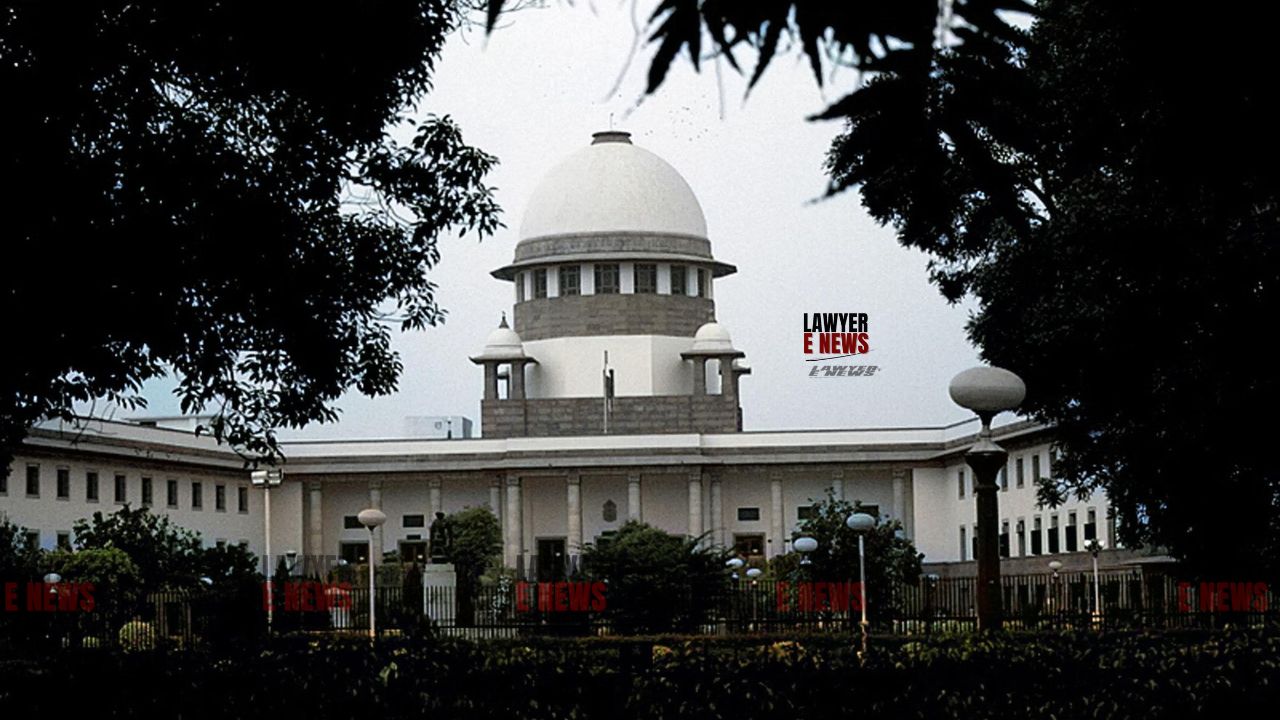-
by Admin
15 February 2026 5:35 AM



Supreme Court of India upheld the High Court's decision to dismiss an appeal filed with a delay of 534 days. The case revolved around the responsibility of litigants to remain vigilant about their legal proceedings, with the Court ruling that negligence by an advocate cannot absolve a party from its obligations.
The Supreme Court firmly dismissed the notion that litigants could solely attribute procedural delays to their advocates, emphasizing:
"Even if we assume for a moment that the concerned lawyer was careless or negligent, this, by itself, cannot be a ground to condone long and inordinate delay as the litigant owes a duty to be vigilant of his own rights and is expected to be equally vigilant about the judicial proceedings pending in the court initiated at his instance."
The bench, comprising Justices J.B. Pardiwala and R. Mahadevan, reinforced that the principle of vigilantibus non dormientibus jura subveniunt—the law aids the vigilant, not those who sleep on their rights—remains a cornerstone of the legal system.
The petitioners, original plaintiffs in the matter, filed a civil suit against the respondent in which a counterclaim was raised. The trial court dismissed the suit for default, and the petitioners’ application for restoration met the same fate. However, the respondent’s counterclaim was allowed via an ex parte judgment on January 17, 2015.
Dissatisfied with the ex parte ruling, the petitioners approached the appellate court after a delay of 534 days, seeking condonation of the delay on the ground of their advocate's alleged negligence. The appellate court granted the condonation, prompting the respondent to challenge this decision before the Himachal Pradesh High Court. The High Court overturned the appellate court's order, finding no justifiable basis for the delay. Aggrieved, the petitioners moved to the Supreme Court.
The Supreme Court underscored the importance of adherence to limitation laws, citing Bharat Barrel & Drum MFG Co. v. ESI Corporation, (1971) 2 SCC 860, where it was observed:
"The object of the statutes of limitation is to compel a person to exercise his right of action within a reasonable time and to suppress stale, fake, or fraudulent claims."
Addressing the petitioners’ argument of advocate negligence, the Court referenced Salil Dutta v. T.M. & M.C. Pvt. Ltd., (1993) 2 SCC 185:
"No absolute rule exists allowing a litigant to disown an advocate's actions and seek relief. Such an approach would disrupt the system's functioning, leading to misuse and inefficiency."
The Court further noted that the petitioners failed to act diligently despite clear knowledge of the counterclaim as early as March 2012, as highlighted by the High Court:
"The respondents had not approached the Court with clean hands and have rather suppressed material facts deliberately and intentionally."
Dismissing the special leave petitions, the Supreme Court concluded that there was no legal error in the High Court's judgment. It emphasized that condonation of delay requires compelling justification and that litigants must exercise proactive vigilance in pursuing their cases.
The judgment reaffirms the judiciary's commitment to upholding procedural discipline and ensuring that the system remains fair and efficient.
Date of Decision: November 21, 2024
